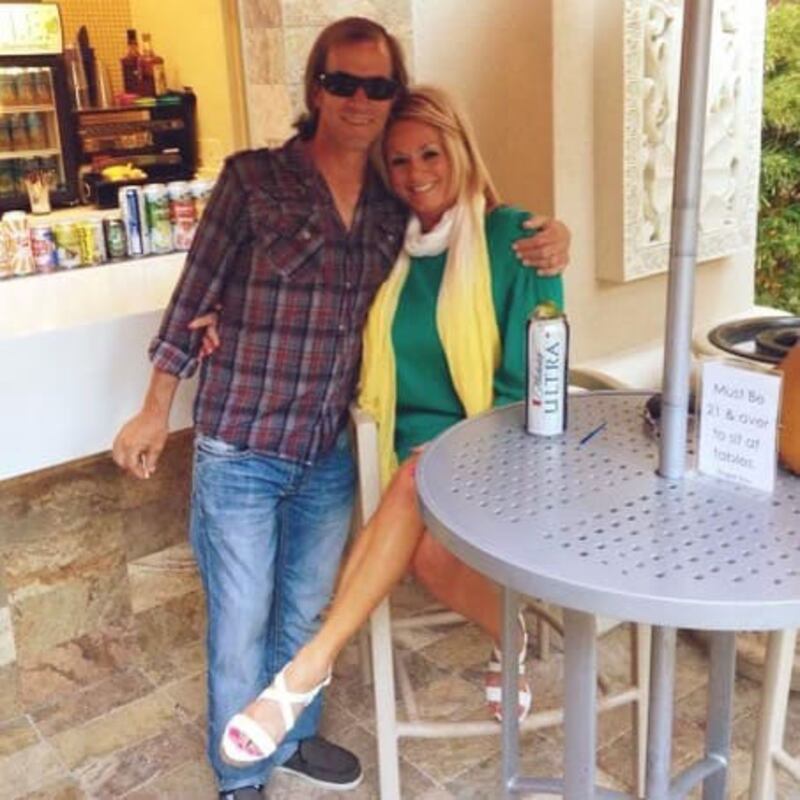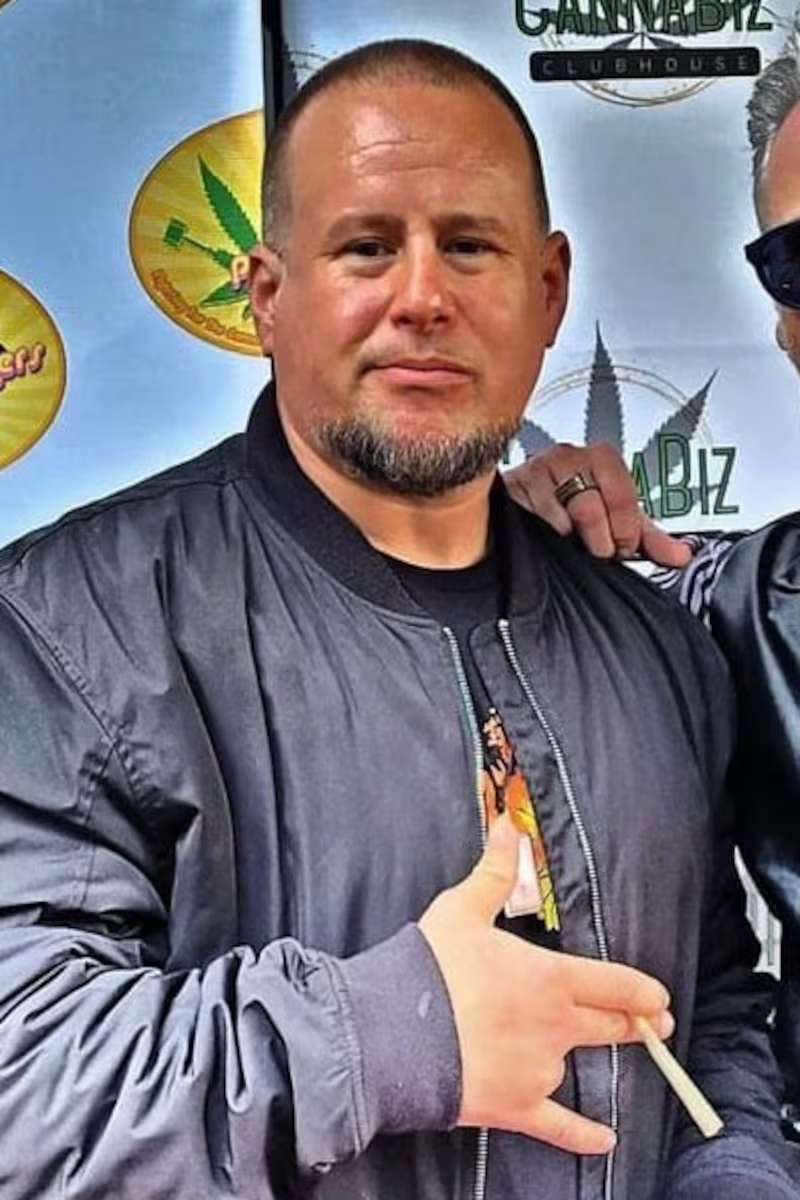At its peak, The Blacklist was the front page of the internet for the U.S. cannabis industry.
Lured by an intoxicating “user generated” mix of insider leaks, industry rumor and gossip, and aggregated content that appeared to be copy-pasted directly from reputable news sources and spun into viral social-media posts, The Blacklist built an audience now totaling more than 400,000 Instagram followers. The result was “the most disruptive force in weed,” as cannabis website MerryJane described the outfit after interviewing one of The Blacklist’s shadowy, “anonymous” operators in 2019.
In its own words aspiring to be the putative “TMZ of cannabis,” The Blacklist at times showed an unfiltered, unreliable, and darker side.
It was alleged without conclusive evidence in industry circles that negative posts could be made to disappear for a few thousand dollars, a practice popular Instagram celebrity and cannabis entrepreneur Berner suggested was “extortionist” in an interview with SF Weekly last year. (The Blacklist rejected the claims as lacking evidence and “libelous” at the time.) They have also responded to claims that unvetted information has been published by pointing to legal protections for the hosts of user-generated content.
Whatever The Blacklist may currently be, the people behind the controversial outlet are no longer anonymous. A dispute over the company’s ownership is the focus of a spiraling legal battle—and the latest episode in an increasingly ugly, increasingly public beef that’s equal parts personal drama and industry sideshow.
What’s not in dispute is that The Blacklist’s registered founder and owner, as per Delaware corporate filings attached to a lawsuit filed earlier this year, is a Los Angeles-area woman named Shalon Doney.
Doney is (for now) still married to Adam Campbell, a long-time cannabis grower who spent years fighting a federal pot case in Montana. A divorce proceeding filed in 2021 is not yet final. That means The Blacklist is community property—that is, an asset that should belong equally to both spouses—and Campbell is entitled to half, as Doney’s lawsuit admits.

Shalon Doney and Adam Campbell in 2010s.
Courtesy of Matthew WagnerStill, she claims in her suit that “since its inception, Ms. Doney has been the sole operator and manager of TBO [The Blacklist Online] and she remains as such today.”
In addition to suing Campbell for “unlawfully misappropriating [Doney’s] federal intellectual property rights,” Doney is also suing Matthew Wagner, the man who sat for the “anonymous” MerryJane interview.
Doney’s lawsuit alleges that Campbell and Wagner represented themselves as The Blacklist in negotiations with a potential partner earlier this year that would have seen the brand expand from media into cannabis manufacturing and verification. Doney found out about this, her suit alleges, after she received DMs on The Blacklist’s account from people she didn’t recognize saying, “‘nice meeting you’ (or words to that effect),” according to her suit. (Going public right away, The Blacklist then posted on its LinkedIn page that the pair were “unauthorized people claim [sic] to be working with The Blacklist.”)
Much of the public drama around The Blacklist centers on Wagner. A former adult nightclub owner, promoter, and performer originally from Missouri—where, he said in an interview, he originally met Doney—Wagner started selling advertising for The Blacklist in late 2019.

Matthew Wagner
Courtesy of Matthew WagnerIn his response to Doney’s lawsuit, filed last month, Wagner alleges that Doney formed The Blacklist at the direction of her estranged husband, Campbell. (The Blacklist’s logo, an empty-faced human figure in an upturned hooded sweatshirt, is based on Campbell, the two men told The Daily Beast.)
Further, Doney promised Wagner a one-third stake in the company “if he could figure out ways to monetize the platform”—and Wagner started closing five-figure advertising deals in late 2019, according to his own filing.
Their arrangement went south after Doney became “physically and verbally abusive” towards him, Wagner claimed in a March letter sent to Doney by his attorney and entered into the court record as part of her lawsuit. (Her filing said the claims were “legally and/or factually without merit.”)
The letter claims that Doney sold a half stake in the company for $250,000 to another California entrepreneur, giving the company a potential valuation at $500,000.
That claim could not be immediately verified. In a telephone interview, the entrepreneur who Wagner said bought a stake denied making any deal—and claimed to have no relationship with The Blacklist.
Contacted through her attorney, David Gingras, Doney canceled a scheduled interview at the last minute earlier this month. Emails with follow-up questions were returned by someone writing from the email address admin@theblacklist.xyz, identifying themselves only as “The Blacklist Admin.”
The correspondent dismissed all of Wagner’s claims before throwing out some more accusations of their own.
“All of Matt Wagner’s allegations will prove to be false and untrue in a court of law,” the person wrote. “There is no proof to any of his false allegations, which is why a lawsuit was filed against him.”
“We will not comment further on frivolous claims being brought forward by an ex sales person who worked for blacklist for a short period time [sic]. We will continue to aggregate content and be the voice of the community.”
The correspondent offered a shifting explanation for the purported sale—first claiming that the investor was bought out six weeks after the deal, then claiming there was no deal at all, before they lobbed a serious bomb.
“It should also be noted that Wagner was released after it was discovered he managed a brothel that trafficked underage girls,” the email added. “That information is available with an internet search.” [emphasis theirs]
In later emails, the correspondent shared photos of Wagner in various states of undress, including promotional photos for a male stripper show. The correspondent said he was fired “once these photos surfaced and there was a story submitted that Mr. Wagner was involved in a brothel in Thailand that was raided for trafficking underage girls.”
Wagner freely admits Missouri police raided a club he was managing in 2014—and that the risqué photos, from a four-month period when he performed in Texas, are in fact genuine. The premise of the raid was the illegal sale of alcohol, dancers unlawfully performing nude, and the operation of an adult cabaret after hours, according to local reports at the time (which centered on the county sheriff defending his decision to use flash-bang grenades in the raid). Wagner was charged with felony drug possession for allegedly possessing anabolic steroids, according to the news items.
He pleaded guilty to two misdemeanors for allowing dancers too unclothed for Missouri law, according to a copy of the plea agreement reviewed by The Daily Beast. Doney knew all of this before Wagner started to work for The Blacklist, he claimed in an interview.
As for the underage trafficking allegation, that’s a familiar line, Wagner claimed.
“It’s just not true, and that’s why I’m not afraid to face it.”
It is true that, years after the Missouri incident, Wagner worked as a consultant and promoter for nightclubs in Thailand, where he was quoted in a November 2018 local news item about a record $6,100 tab run up by a British tourist at the Windmill in Pattaya City.
It’s also true that Thai police raided that club and arrested three employees after a 16-year-old girl offered sex to an undercover informant in July 2019, according to Thai media reports. By that point, Wagner says he was already back in the States, a claim supported by Facebook posts appearing to place him in Pennsylvania around the time of the raid. (The office of the public prosecutor in Pattaya did not respond to an email seeking comment.)
Wagner also claims to be the subject of a larger troll campaign. Earlier this year, someone—not Wagner, he says—launched an Instagram account under the handle @mattwagner_ca where, along with innocuous posts, some of the stripper photos appear. “THIS PERSON DOES NOT REPRESENT @theblacklistxyz OR ITS AFFILIATES,” @theblacklistxyz posted in the comments.
Dan Miller, Wagner’s attorney in the lawsuit filed by Doney, said that his client plans to bring a separate suit against Doney and The Blacklist for defamation in response to the trafficking allegations.
In a separate interview, Campbell said his wife formed The Blacklist’s corporate structures by herself because he was on federal probation for the marijuana charge picked up in Montana. Campbell has yet to be served with the federal suit, which he described as a deliberate effort to draw out the divorce and lock him out from his share of The Blacklist in the meantime.
“Her goal is ostracization,” he said. “Her goal is to really make it so Matt and I are not part of the industry, that I’m not the original hoodie guy who started The Blacklist, which is ludicrous.”
It was Doney who saw The Blacklist as a “money grab,” Wagner claimed. Her venality took off after she left Campbell in May 2020, Campbell argued, claiming she used The Blacklist to fund a “five-star lifestyle.” (Neither Gingras nor admin@theblacklist.xyz addressed these allegations.)
“What it’s turned into is a total perversion of the original ethos,” Campbell said of The Blacklist.
For some in cannabis, the property is now damaged beyond repair, regardless of what happened behind the scenes or what comes next—or who wins.
“I’ve never been quite sure what the vision of The Blacklist is other than to stoke divisiveness in this industry that is already under attack in so many ways,” said Kip Morrison, a veteran PR professional and principal of KMA Cannabis, one of the larger agencies in weed. “Posting gossip and negative reviews from anonymous sources does not equal credibility in our book.”






